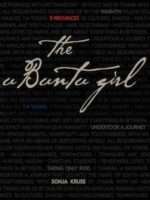Day 184: Coligny
As an outsider, I could often pick up on the undercurrents of hurt, anger and insecurities flowing from other people. I could sense whether communities were socially cohesive or not.
On the face of it, there is nothing wrong with this town. In fact, its location makes it rather beautiful. It is one of those little dorpies where not all the roads are tarred and everyone knows their neighbours. I arrive there on a Sunday morning. The townsfolk are still in bed, or in church. They certainly aren’t walking in the streets. An intense sadness washes over me; maybe I still feel the hurt and separation of Ventersdorp, where I spent the night.
When I see a stop sign on a dirt road, in this Sunday-deserted neighbourhood, I decide to obey and park next to it for a while. I plonk down heavily. Become embedded on the road. Tired. Very tired. What on dear earth am I doing? It is the second time that I’m asking myself that.
I want to go home. I summon the energy to grab the sign post and pull myself up. Very undignified. I decide to hitch to the next biggest town, Lichtenburg. From there I’ll hitch back home. Six months. It’s been six months.
I find the main street. I see five or six people. A beggar asks me for money. No, I cannot help him. Does he perhaps have any for me? Lost in my misery I am also lost geographically and ask for directions at the local police station. But I am not in the mood to listen carefully to instructions and land up following my own nose. Incorrectly, as it turns out.
I have to cut through tall grass to get to the R503 to Lichtenburg. For my punishment. I must lift my legs high to make progress over the uneven ground. And then, as I take a giant step, my right foot lands in something wet. I freeze. Do I even want to look down?
Then I smell it! My head stays frozen in place, just my eyes venture downward. Black water! I have stepped into vile black water with white scum floating on it that is now attaching itself to my leg. One foot wet, one foot dry. I stay momentarily locked into position. Where to from here? Do I go back? Forward? The irony of the situation is not completely lost on me. I have physically stepped into what is inside me. Toxic waste. I am traversing the toxic wasteland of my mind.
In the end I decide to go forward and wade through three more black puddles before I arrive at the R503, bedraggled, wet, dirty and smelly. Undignified but honest. In turmoil I continue walking. There will be no hitchhiking today. I mean, I don’t even want to be anywhere near me. Besides, I have no energy to talk to anyone. Explain things. Again.
To signal my intention I walk on the right side of the road, facing the oncoming traffic. But within a hundred metres a bakkie pulls over. I wave the driver on, but he does not take no for an answer. His son is demoted to the back of the vehicle that would have been perfect for me.
‘You must be a foreigner?’
The driver is Afrikaans so I switch over, and with that, predictably, the questions start. I feel like I’m on my way to the slaughterhouse, but I reset my attitude by admonishing myself to put aside my ego and show respect. I remind myself that the purpose of my journey is to build social bridges in the name of uBuntu. What if no-one asked questions? If people weren’t interested to interact with me? So I try to explain as best I can what I’ve been doing the past months. The man next to me is quite shocked. His eyes harden a little when he tells me that the only reason he picked me up was because I have his blood. Because I am white. He proceeds to tell me that if I had been black he would not have stopped, even if I was wounded. Now it’s my turn to be shocked. I rebel at the thought of having any DNA connections with this man and wait for a wave of anger to wash over me, but it does not come. What can that mean?
He talks of blacks and how, when he walks in town, they don’t get out of his way. Again, I feel no disgust at his bitter rant. Instead, I hear myself calmly explain that I meet all people with a smile and a friendly greeting and how there is enough space on the pavement for us all. He looks at me and shakes his head. ‘You are not going to change my mind.’
Indeed, I am not trying to. I’m simply telling him how I experience the same thing in a completely different way. In that bakkie on that road, on my way home, this man reminds me how much we need bridges.
Later I realised that what happened to me in that vehicle was an exercise in tolerance. If I could still be tolerant in the face of adversity, then that meant that I still had a long way to go before I hit rock bottom. That man allowed me to see the need to continue on my journey so that I could share this particular incident and all the others, past and future. I was beginning to understand that I was merely the custodian of a collective voice.


